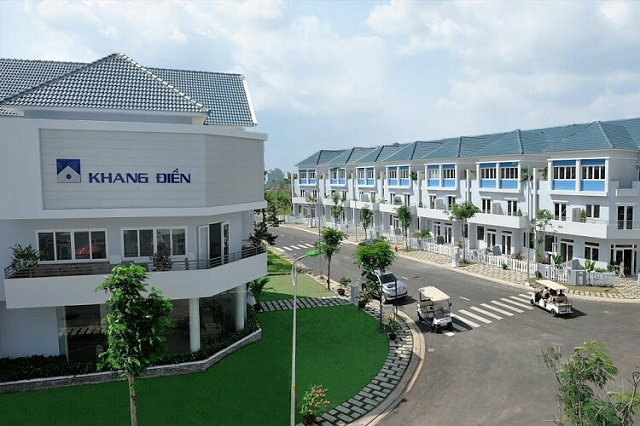 Economy
Economy

 |
| A corner of the Venica real estate project, which is built by Khang Điền House Trading and Investment JSC (KDH). Real estate businesses that have loans in USD will have to bear higher interest costs and deeper exchange rate losses due to USD appreciation, affecting business results. — Photo Khang Điền House |
HÀ NỘI By the end of this year, oil and gas, transportation, insurance, retail, and hydropower sectors will see positive signals, while the banking and real estate sectors are not ideal options for short-term investment, said experts from DNSE Securities Company.
Experts from DNSE Securities Joint Stock Company said that the Fed continued to increase the US Dollar interest rate sharply by 75 basis points, leading to a high VND/USD exchange rate. VND depreciated against USD by 3.5-4 per cent in 2022, negatively affecting businesses that import goods or have loans in USD.
The State Bank of Vietnam (SBV) recently increased the operating interest rate by 1 percentage point due to the pressure of the Fed’s interest rate hike, showing that the SBV is prioritising the goal of controlling inflation and stabilising the macroeconomy, meanwhile maintaining low lending rates to support businesses. DNSE experts believe that this is a negative factor for the banking industry.
Amid rising interest rates to cool down inflation, global stock markets, as well as in Việt Nam, did not react positively as the cash flow sought safer havens such as the USD or Government bonds.
Inflation is under control, and the devaluation of the domestic currency is not as serious as in other countries, showing the proper management and direction of the Government and SBV in inflation control and exchange rate appreciation, and stabilising the country's economy.
Negatively affected
“The negative fluctuations in interest rates, as well as the high VND/USD exchange rate, will increase costs for businesses with a high debt structure in USD. Interest expenses increased due to continued high anchoring interest rates combined with exchange rate losses. The group of electricity and infrastructure; real estate sectors will be negatively affected by the current context,” said Nguyễn Ngọc Linh, Proprietary Director of DNSE.
“Especially for real estate businesses that have loans in USD when carrying out large projects, these businesses will have to bear higher interest costs and deeper exchange rate losses due to USD appreciation, affecting business results.
“The increase of the operating interest rate by the State Bank to reduce the devaluation of the Vietnamese đồng will help real estate businesses restructure debts, reduce interest rate and exchange rate risks. However, it takes time for the policy to come into reality, so in the current period, businesses will have to make efforts to prove their internal health and have many measures to combat external risks,” she said.
Oil and gas, transportation, insurance have opportunities
The crisis between Russia and Ukraine has reshaped the global flow of crude oil and changed shipping routes, making journeys longer as the EU switches to imports from the Middle East, and Russia switches to Asian countries such as China and India. It is expected that this will increase the price of fuel tankers. DNSE experts believe that the oil and gas transport group will benefit from this.
Insurance is an industry group that can benefit in the short term due to the SBV's move to increase operating interest rates, due to the specific nature of the industry, which is money trading and mobilising money through insurance products and bonds. Therefore, at the moment, this is the industry with the fewest risks and biggest benefits from the increase in interest rates.
Retail, hydropower
The retail industry is a notable industry group at the end of this year when the consumer demand for products increases after the COVID-19 pandemic, and at the same time, there are many holidays at the end of the year and petrol prices in Việt Nam are on the decline, causing inflation pressure to cool down.
The increase in electricity consumption thanks to the recovery of demand from the manufacturing sector after the pandemic also creates a push for the power sector, including hydroelectricity. VNS




